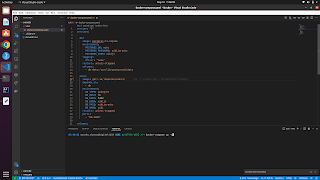Ansible CLI cheatsheet
Hey everyone, I would like to share some of the basic commands of ansible as I am practising ansible. Well, it is another helpful tool that describes how machines should be configured or what actions should be taken on them (systems). What is ansible? Ansible is Cross-platform configuration management tool An open-source software Application deployment tool An intra-service orchestration tool Basically, it is a radically simple IT automation engine. Introduction This cheat sheet-style guide provides a quick reference to CLI commands which are commonly used. Glossary Node :- A system where Ansible is installed and configured to connect to other systems. Inventory File :- A file that contains information about the servers Ansible controls, typically located at /etc/ansible/hosts Playbook :- A YML file containing a series of tasks to be executed on a remote server. Role :- A collection of playbooks and other files that are relevant to a goal such as insta...

